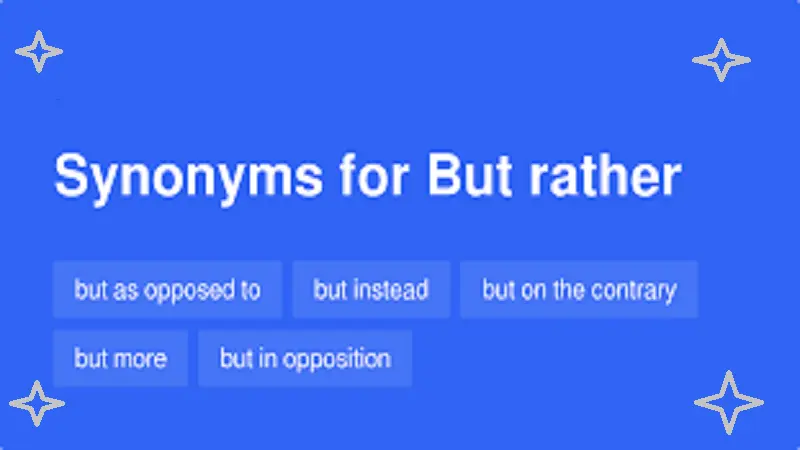In our daily lives, we often face decisions that require us to choose between different options. However, it’s essential to realize that sometimes the best choice isn’t the most obvious one. But rather than making a hasty decision, we should consider alternatives that could lead to better outcomes. In this article, we’ll explore the significance of the phrase “but rather,” its role in improving our decision-making process, and how it encourages us to think critically about our choices.
But Rather: A Gateway to Better Decisions
When making decisions, it’s easy to follow the most straightforward path. But rathers than settling for the first option that comes to mind, it’s beneficial to pause and evaluate other possibilities. This approach can lead to more informed and thoughtful decisions, ultimately resulting in better outcomes.
The phrase “but rathers” serves as a reminder to consider alternatives. It encourages us to think beyond the obvious and explore different perspectives. By doing so, we open ourselves up to new opportunities and solutions that we might not have initially considered.
But Rather: Enhancing Communication
Effective communication is crucial in all aspects of life, whether it’s in personal relationships or professional settings. But rathers than simply agreeing with someone or accepting their point of view, it’s essential to engage in meaningful dialogue. This involves listening, understanding, and sometimes offering alternative perspectives.
Using “but rather” in conversations can help clarify our thoughts and intentions. It allows us to express our ideas in a way that acknowledges others’ viewpoints while presenting our perspective. This approach fosters open communication and can lead to more productive and harmonious interactions.
But Rather: Promoting Critical Thinking
Critical thinking is a valuable skill that enables us to analyze situations and make well-informed decisions. But rathers than accepting information at face value, it’s essential to question, evaluate, and consider alternative explanations.
By using “but rathers” in our thought processes, we encourage ourselves to dig deeper into the issues at hand. This critical approach helps us avoid hasty judgments and ensures that our decisions are based on a comprehensive understanding of the situation.
But Rather: Encouraging Positive Change
Change is a constant in life, and adapting to it can be challenging. But rathers than resisting change, it’s important to embrace it and seek out the opportunities it presents. Whether it’s a career change, a new relationship, or a shift in lifestyle, considering alternatives can lead to positive outcomes.
When faced with change, using “but rather” in our thinking can help us focus on the benefits of the new situation. This mindset encourages us to approach change with an open mind and a willingness to explore new possibilities.
Frequently Asked Questions About “But Rather”
1. What does “but rathers” mean?
“But rather” is a phrase used to introduce an alternative or contrast to a previous statement. It highlights the importance of considering another option or perspective.
2. How can “but rathers” improve decision-making?
Using “but rather” in decision-making encourages individuals to evaluate alternative options and think critically before making a choice. This approach leads to more informed and thoughtful decisions.
3. Can “but rathers” be used in professional communication?
Yes, “but rathers” can be effectively used in professional communication to present alternative ideas or viewpoints in a respectful and constructive manner.
4. How does “but rathers” promote critical thinking?
“But rathers” promotes critical thinking by encouraging individuals to question assumptions, evaluate different perspectives, and consider alternative explanations before reaching a conclusion.
5. Why is it important to use “but rathers” in conversations?
Using “but rather” in conversations allows for open dialogue and the exchange of ideas. It helps clarify intentions and fosters a more collaborative and productive interaction.
Conclusion
In conclusion, the phrase “but rather” plays a crucial role in our daily lives, influencing how we make decisions, communicate, and think critically. But rather than accepting the first option or idea that comes our way, it’s essential to pause, consider alternatives, and approach situations with an open mind. This mindset not only enhances our decision-making abilities but also promotes positive change and fosters effective communication.
By incorporating “but rather” into our vocabulary and thought processes, we can improve our overall approach to life. This simple phrase reminds us to look beyond the obvious, explore new possibilities, and make choices that lead to better outcomes.
